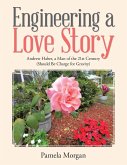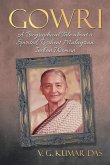Her goal: to become a world-renowned biomedical engineer working with scientific societies to improve the role of women in scientific fields and the way scientists and engineers integrate people and society into their work. By 1979, this goal had become a reality. In her memoirs, acclaimed biomedical engineer Monique Frize recalls the events in her life that taught her to overcome obstacles, become more resilient, recognize the importance of mentors and role models, and remain focused on the future. She also speaks of her appreciation of the critical role played by family and friends in maintaining the strength and determination required to succeed. And, above all, to succeed in a man's world. Frize fondly remembers her youth in Montreal and in Ottawa, and her marked interest for math and science. Her entry into the world of engineering was both romantic--she met her husband--and tragic. She faced prejudice and stereotypes, which she ultimately overcame. She reconciled family and work life, pursuing a challenging and rewarding international career in a very specialized field at a time when this was still very uncommon for a woman. And she relives the tragic Polytechnique massacre. These memoirs are sure to inspire young women who have a dream, and more specifically those who wish to enter sciences and engineering. This book is published in English. - Son objectif: devenir une ingénieure biomédicale de renommée internationale en travaillant avec les sociétés scientifiques pour améliorer le rôle des femmes dans les domaines scientifiques et les moyens par lesquels les scientifiques et les ingénieures intègrent les gens et la société à leur travail. En 1979, elle avait atteint cet objectif. Dans ses mémoires, l'ingénieure biomédicale saluée Monique Frize se remémore les événements de sa vie qui lui ont appris à surmonter les obstacles, à devenir plus résiliente, à reconnaître l'importance des mentors et des modèles de rôles, à rester rivée sur l'avenir et à reconnaître le rôle essentiel que jouent la famille et les amis dans le maintien de la force et de la détermination nécessaires au succès. Mais aussi à réussir dans un univers masculin. Frize se remémore affectueusement sa jeunesse à Montréal et à Ottawa, notamment son intérêt marqué pour les mathématiques et les sciences. Son entrée dans le monde de l'ingénierie était tout aussi romantique - elle y a rencontré son mari - que tragique. Elle a dû confronter des préjugés et des stéréotypes, qu'elle a finalement vaincus. Elle a concilié famille et travail pour mener une carrière internationale gratifiante dans un champ très spécialisé à une époque où les femmes avaient très peu de place. Et elle revit le massacre tragique de la Polytechnique. Ces mémoires sauront inspirer les jeunes femmes qui ont un rêve, et plus particulièrement celles qui souhaitent percer en sciences et en génie. Ce livre est publié en anglais.
Hinweis: Dieser Artikel kann nur an eine deutsche Lieferadresse ausgeliefert werden.
Hinweis: Dieser Artikel kann nur an eine deutsche Lieferadresse ausgeliefert werden.








